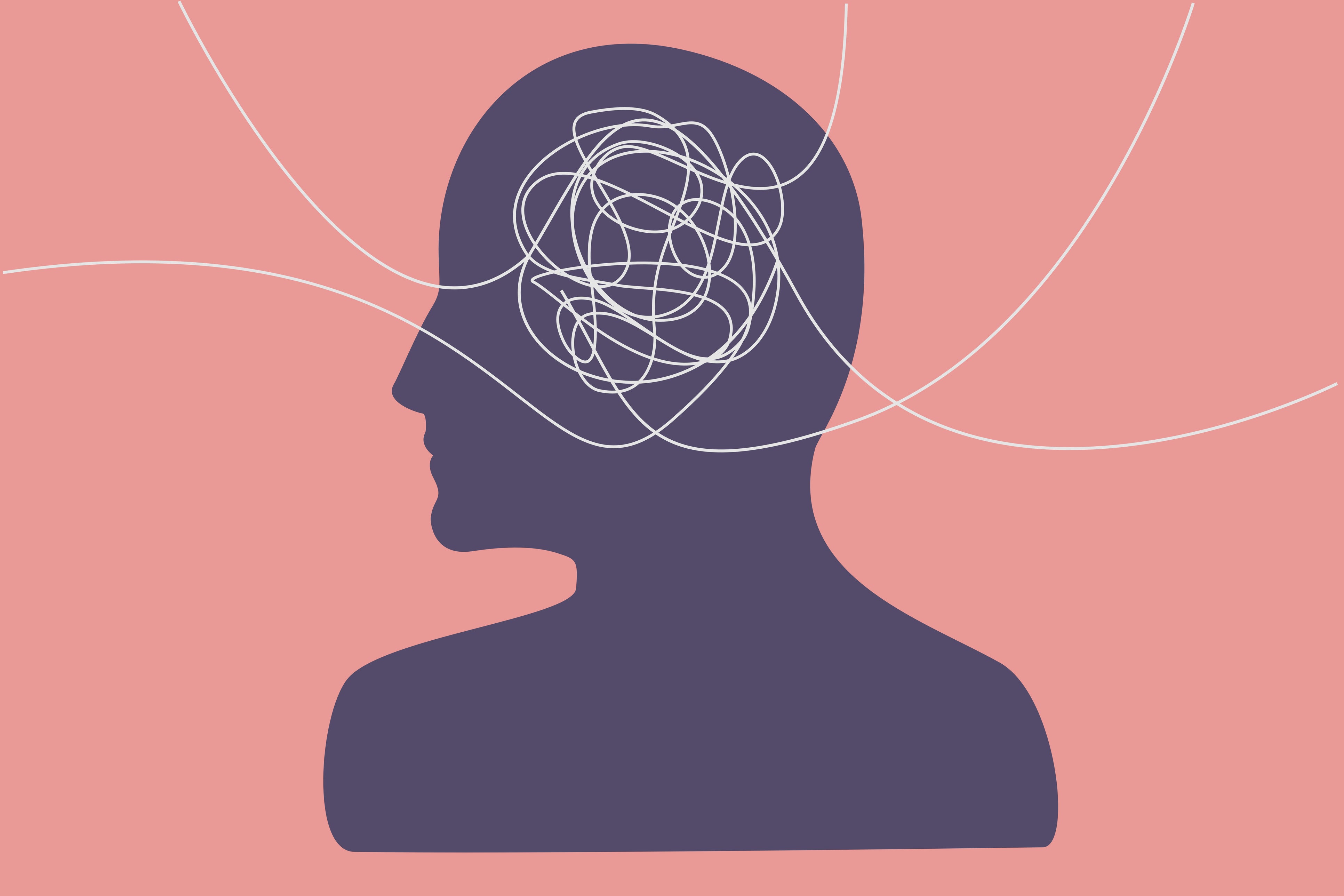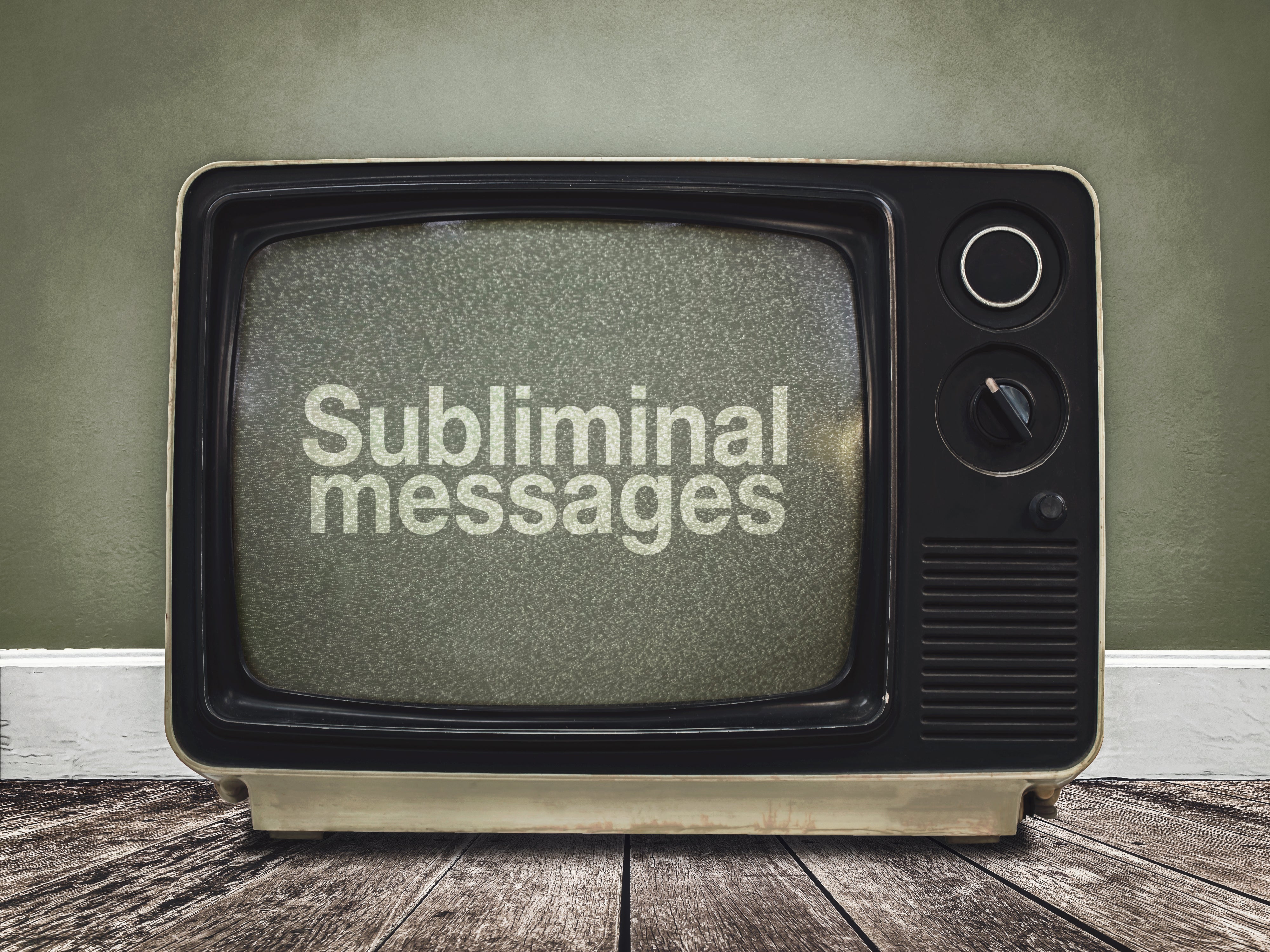Is our subconscious more in control of our lives than we think?
Magda Osman asks whether we are are in control of our decisions or if it’s the case that our subconscious takes over at vital times

Your support helps us to tell the story
From reproductive rights to climate change to Big Tech, The Independent is on the ground when the story is developing. Whether it's investigating the financials of Elon Musk's pro-Trump PAC or producing our latest documentary, 'The A Word', which shines a light on the American women fighting for reproductive rights, we know how important it is to parse out the facts from the messaging.
At such a critical moment in US history, we need reporters on the ground. Your donation allows us to keep sending journalists to speak to both sides of the story.
The Independent is trusted by Americans across the entire political spectrum. And unlike many other quality news outlets, we choose not to lock Americans out of our reporting and analysis with paywalls. We believe quality journalism should be available to everyone, paid for by those who can afford it.
Your support makes all the difference.Sometimes when I ask myself why I’ve made a certain choice, I realise I don’t actually know. To what extent are we ruled by things we aren’t conscious of? – Paul, 43, London
Why did you buy your car? Why did you fall in love with your partner? When we start to examine the basis of our life choices, whether they are important or fairly simple ones, we might come to the realisation that we don’t have much of a clue. In fact, we might even wonder whether we really know our own mind, and what goes on in it outside of our conscious awareness.
Luckily, psychological science gives us important and perhaps surprising insights. One of its most important findings was made by psychologist Benjamin Libet in the 1980s. He devised an experiment which, though apparently simple, has generated an enormous amount of debate ever since.
People were asked to sit in a relaxed manner in front of an adapted clock. On the clock face was a small light revolving around it. All that people had to do was to flex their finger whenever they felt the urge, and remember the position of the light on the clock face when they experienced the initial urge to do so. At the same time as that was happening, people had their brain activity recorded via an electroencephalogram (EEG), which detects levels of electrical activity in the brain.
What Libet was able to show was that timing really matters, and that it provides an important clue as to whether or not the unconscious plays a significant role in what we do. He showed that that electrical activity in the brain built up much earlier than the point at which someone consciously decided to flex their finger.
In other words, unconscious mechanisms, by way of preparatory neural activity, set us up for any action we decide to take. But this all happens before we consciously experience intending to do something. It would seem from this finding that the unconscious rules every action we ever take.
People still believe, according to recent studies, that methods such as subliminal advertising are in use, when in fact there is legislation protecting us from it
But as science progresses, we are able to revise and improve on what we know. We now know that there were several fundamental problems with Libet’s experimental set-up, which leads researchers to believe that the above claim is significantly exaggerated. For example, when you correct for biases in subjective estimates of conscious intention, the gap between conscious intention and brain activity reduces. However, the original findings are still compelling, even if they can’t be used to claim that our unconscious completely rules our behaviour.
Unconscious manipulation
Another way of approaching the question of whether we are ultimately ruled by our unconscious is to look at instances where we might expect unconscious manipulation to occur. In fact, in my research, I asked people what those were.
The most common example given was marketing and advertising. This may not be a surprise given that we often come across terms such as “subliminal advertising”, which implies that we are guided towards making consumer choices in ways we can’t consciously control.
James Vicary, who was a marketer and psychologist in the 1950s, brought the concept to fame. He convinced a cinema owner to use a device to flash up messages during a film screening. Messages such as “Drink Coca-Cola” appeared for a 3,000th of a second. Vicary claimed that sales of the drink shot up after the film ended. After the considerable furore around the ethics of this finding, Vicary came clean and admitted the whole thing was a hoax – he had made up the data.

In fact, it is notoriously difficult to show in laboratory experiments that the flashing of words below the conscious threshold can prime us even to press buttons on a keyboard that are associated with those stimuli, let alone manipulate us into actually changing our choices in the real world.
The more interesting aspect of this controversy is that people still believe, according to recent studies, that methods such as subliminal advertising are in use, when in fact there is legislation protecting us from it.
Unconscious decision-making
But do we make decisions without consciously thinking? To find out, researchers have investigated three areas: the extent to which our choices are based on unconscious processes; whether those unconscious processes are fundamentally biased (for example, sexist or racist); and what, if anything, can be done to improve our biased, unconscious decision-making.
On the first point, a pivotal study examined whether the best choices made in consumer settings were based on active thinking or not. The startling findings were that people made better choices when not thinking at all, especially in complex settings.
The researchers argued that this is because our unconscious processes are less constrained than conscious processes, which make huge demands on our cognitive system. Unconscious processes, such as intuition, function in ways that automatically and rapidly synthesise a range of complex information, and this confers an advantage over thinking deliberately.
As with the Libet study, this research generated intense interest. Unfortunately, efforts to replicate such impressive findings were extremely difficult, not only in the original consumer contexts but beyond, into areas where unconscious processes are thought to be rife – such as in unconscious lie detection, medical decision-making, and romantically motivated risk-taking).
That said, there are of course things that can influence our decisions and steer our thinking to which we don’t always pay close attention, such as emotions, moods, tiredness, hunger, stress and prior beliefs. But that doesn’t mean we are ruled by our unconscious – it is possible to be conscious of these factors. We can sometimes even counteract them by putting the right systems in place, and we can accept that they contribute to our behaviour.
Unconscious bias
But what about bias in decision-making? A highly instructive study showed that, through the use of a now widely adopted technique known as the implicit association test (IAT), people harbour unconscious, biased attitudes towards other people (such as race- or gender-related prejudice). It also suggested that these attitudes can actually motivate biased decisions in regard to employment, as well as in legal, medical and other important areas.
However, the alarm can be muted when looking more closely at research on the topic, since it shows two critical problems with the IAT. First, if you look at an individual’s test scores on the IAT on one occasion, and then get them to do it again, the two don’t match consistently; this is known as limited test-retest reliability. Also, it has been shown that IAT results are a poor predictor of actual decision-making behaviour, which means that the test has low validity.
Nudge
There have also been efforts to try to improve the way we make decisions in our day-to-day lives (such as how healthily we eat, or whether to save for retirement) where the bias in our unconscious processes might limit our ability to do so. Here the work by Nobel laureate Richard Thaler and his colleague Cass Sunstein has been revolutionary. The basic idea behind their work came from cognitive scientist Daniel Kahneman, another Nobel prize winner, who argued that people make rash decisions which are primarily unconsciously motivated.

To help improve the way we make decisions, Thaler and Sunstein contend, we need to redirect biased unconscious processes towards the better option. The way to do this is through gently “nudging” people, so that they are guided on an unconscious level to make better decisions. For example, you could make sweets less easily accessible in a supermarket than fruit. This research has been adopted globally in all major public and private institutions.
The more robust scientific evidence indicates that we are more likely governed by conscious than unconscious thinking
Recent research shows that nudge techniques often fail dramatically. They also backfire, leading to worse outcomes than if they hadn’t been used at all. There can be several reasons for this, such as applying the wrong nudge or misunderstanding the context. It seems that in order to change behaviour, it takes more than simply nudging.
That said, the nudge theory leads us to believe that we are more easily influenced than we are. A fundamental aspect of our psychological experiences is the belief that we are the agents of change, be it in regard to personal circumstances (such as having a family) or those external to us (such as anthropogenic climate change).
On the whole, we would rather accept that we have free choice in all manner of contexts, even when we perceive it to be under threat from mechanisms unconsciously manipulating us. However, we still strategically believe that we have less agency, control and responsibility in certain areas, based on how consequential they are. For example, we would rather claim conscious control and agency over our political voting than over what breakfast cereal we are purchasing. So we may argue that our poor breakfast choice was down to subliminal advertising. However, we are less inclined to accept the idea that we have been duped into voting a certain way by big-tech social media manipulation.
Headline-grabbing scientific findings in psychology often don’t help because they can appear to support the idea that we are fundamentally ruled by our unconscious. But the more robust scientific evidence indicates that we are more likely governed by conscious than unconscious thinking. Many of us share the sense that we aren’t always fully aware of why we do what we do. This might be because we aren’t always paying attention to our internal thoughts and motivations. But this isn’t equivalent to our unconscious ruling our every decision.
As an experiment, let’s say for a moment that our decisions are actually ruled by our unconscious. If so, there is an advantage to entertaining the belief that we have a degree of conscious control. In cases where things go wrong, believing that we can learn and change for the better depends on us accepting a level of control and responsibility.
In cases where things go well, believing that we can repeat or further improve on our successes depends on accepting that we had a role to play in them. The alternative is to submit to the idea that either random or unconscious forces dictate everything we do, and in the long run that can be mentally devastating.
So why did you fall in love with your partner? Maybe they made you feel strong or secure, challenged you in some way, or smelt nice. Just like any other matter of importance, the answer is multifaceted. What I would argue is that it’s unlikely that your conscious self had nothing at all to do with it.
Magda Osman is a reader in experimental psychology at Queen Mary University of London. This article first appeared on The Conversation
Join our commenting forum
Join thought-provoking conversations, follow other Independent readers and see their replies
Comments